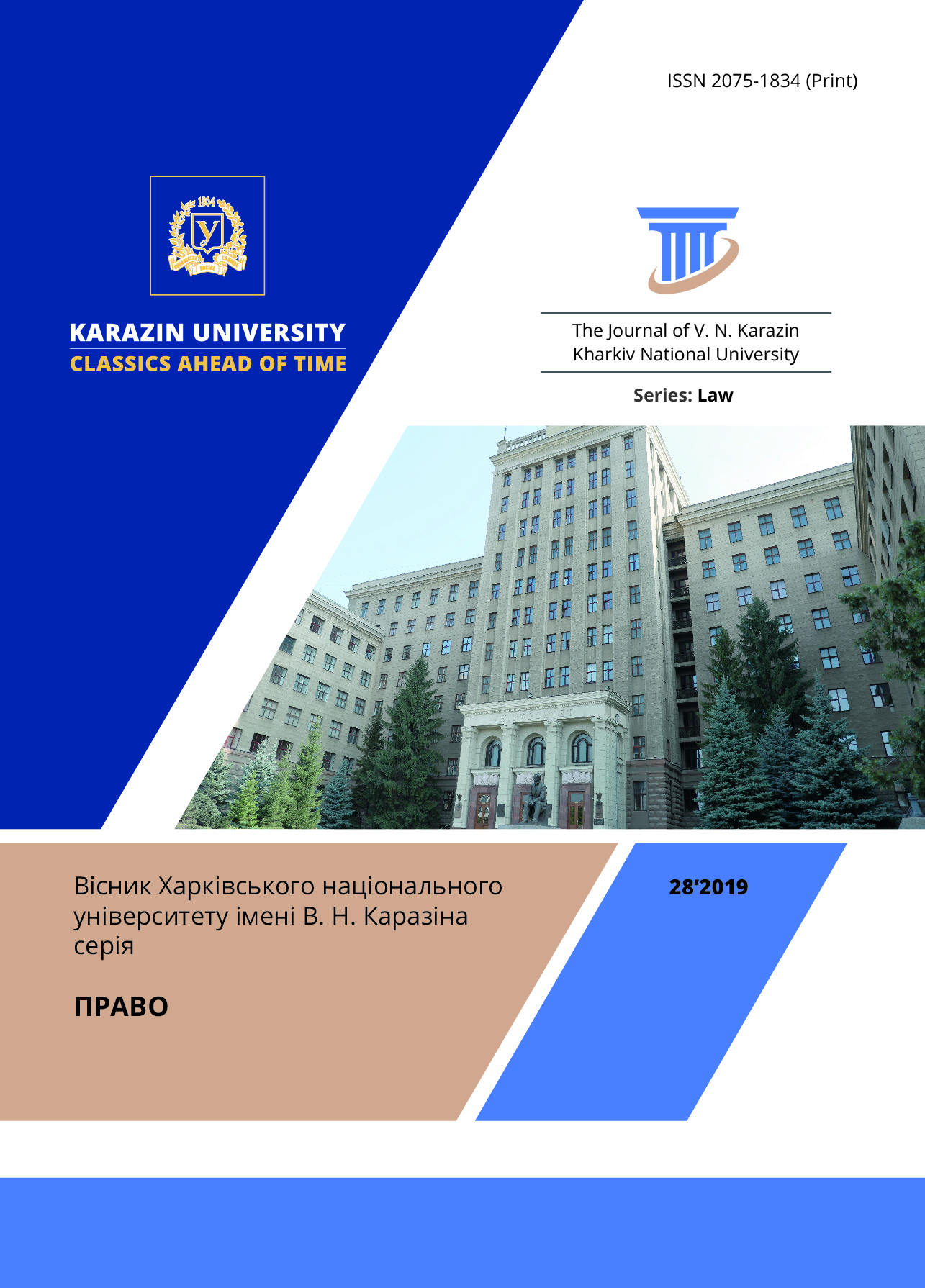Legal Aspects of Formation of Information Jurisdiction of Future Jurists: The Practice of Creating a Web Portfolio
Abstract
The article states that total and radical changes are taking place in society in all spheres, and legislative provision of the sphere of providing educational services in the field of higher legal education is gradually emerging; noted that the conceptual vision of the problem as a whole has not yet emerged; it is stated that human rights are on the surface of all social transformations, and the right among others belongs to the right to information, therefore the aspect of implementation and protection of personal data on the Internet, scientific substantiation, legal regulation of these rights and consolidation of their respective status are relevant; it was also noted that in the conditions of post-industrial society the issues of informatization of the Ukrainian educational space are very topical; it is a question that their decision should be made not only by dynamic methods of development of information educational environment, but also by search of new means, forms and ways of interaction of socio-cultural institutions (media and education), as well as support and evaluation of the effectiveness of the educational process in the conditions of information society; noted that today these tasks are intended to be solved by media education; formation of media competence directly concerns future jurists, since they are responsible for the transfer of knowledge and experience in practice, that is, consulting activities in the context of universal informatization; the issue of media competence of the future jurist is also being updated because the society is experiencing a discrepancy in the experience of interaction with the media in the older generation and young people; it is noted that, because of media creation, a teacher in higher education institution will be able to expand the students' view of future jurisprudence, about the media, to reveal the intellectual potential of modern information technologies and "media culture as a means for further continuous self-education"; it was stated that for a long time the portfolio was used only as an authentic evaluation of the results of the students' educational and professional achievements, but its possibilities are obviously much wider; "Web Portfolio" is a web-based resource that reflects the growth of the owner's educational or professional achievements; the value of such a web-portfolio is also evident in the issue of potential employment and in the self-presentation of oneself as a competent specialist, ready to live and work in the conditions of the information society; it was noted that the web portfolio should be put into operation of the institutions of higher education; indicated that there are also so-called "false portfolios", representing a specialist with no work experience, but with the available skills; stated that the issue of creating a web-portfolio is relevant for the higher education of future jurists; also noted that there is a danger of being "hostage" to the network and, in general, it is difficult to resist, counter, prevent and combat threatening challenges on the network.
Downloads
References
Наказ «Затвердження стандарту вищої освіти за спеціальністю 081 Право для першого (бакалаврського) рівня вищої освіти № 1379 від 12.12.2018 [Електронний ресурс]. – Режим доступу: https://mon.gov.ua/storage/app/media/vishcha-osvita/zatverdzeni%20standarty/12/21/081-pravo-bakalavr.pdf.
Проект Концепції реформування юридичної освіти [Електронний ресурс]. – Режим доступу: https://mon.gov.ua/ua/news/mon-proponuye-dlya-gromadskogo-obgovorennya-napracovanij-spilno-z-ministerstvom-yusticiyi-ukrayini-proekt-koncepciyi-reformuvannya-yuridichnoyi-osviti.
Сопілко І.М. Становлення інформаційного суспільства та інформаційні загрози в мережі інтернет // Юридичний вісник. – 2017. – № 3 (44). – С. 61–69.
Культура и мир детства: избр. произведения / М. Мид; [пер. с англ. и коммент. Ю.А. Асеева; сост., авт. послесл. и отв. ред. И. С. Кон]. – М.: Наука, 1988. – 429 с.
Казанцева Л. Педагогические условия подготовки будущих специалистов к реализации медиаобразования в учебном процессе // Учитель. – 2006. – № 5. – С. 57–62.
Спичкин А. В. Что такое медиаобразование. – Курган: Изд-во КИПКРО, 1999. – С. 13.
Новикова А.А. Федоров А.В. Медиаобразовательные квесты // Инновации в образовании. – 2008. – № 10. – С. 71–93.
Веб-портфолио [Електронний ресурс]. – Режим доступу: https://ru.wikipedia.org/wiki/%D0%92%D0%B5%D0%B1-%D0%BF%D0%BE%D1%80%D1%82%D1%84%D0%BE%D0%BB%D0%B8%D0%BE.
Полилова Т. А. Концепция электронного веб-портфолио [Електронний ресурс]. – Режим доступу: http:7schools.keldysh.ru/courses/e-portfolio.htm.
Топ-5 можливостей для студентів-правників отримати досвід роботи [Електронний ресурс]. – Режим доступу: http://loyer.com.ua/uk/top-5-mozhlivostej-dlya-studentiv-pravnikiv-otrimati-dosvid-roboti.
Закон України «Про авторське право і суміжні права» № 3792-12 від 23.12.1993 [Електронний ресурс]. – Режим доступу: https://zakon.rada.gov.ua/laws/main/3792-12.
Copyright (c) 2019 Ірина Анатоліївна Пахомова

This work is licensed under a Creative Commons Attribution 4.0 International License.




